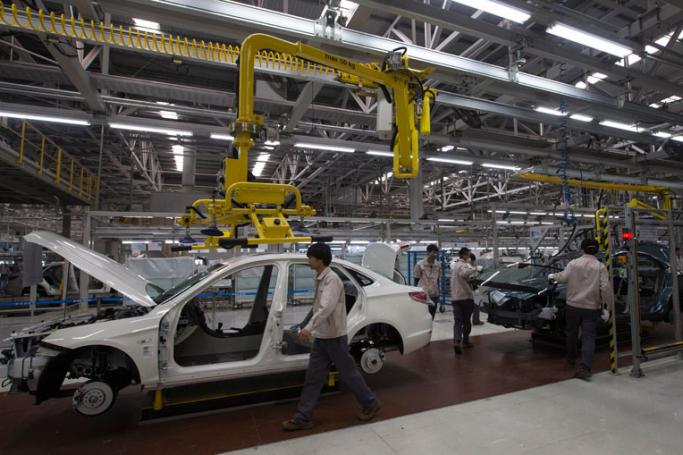Expansion in the Asia-Pacific region's developing economies has plateaued and can no longer be relied upon to drive global growth, the United Nations said Thursday.
The zone -- which includes all regional nations except the advanced markets of Japan, Australia and New Zealand -- grew by an estimated 4.5 percent in 2015, the United Nations Economic and Social Commission for Asia and the Pacific (ESCAP) said in a report.
It was the slowest rate of growth since 2009, the study added.
For 2016, ESCAP predicts a modest rebound to five percent growth for the region.
Prior to the 2008 global economic crash, the region enjoyed growth rates above nine percent and it continued to be a chief global driver in the years following the crisis, with advanced economies enduring sluggish recoveries characterised by anaemic expansion.
But ESCAP economists believe the region is unlikely to continue to lead the global pack.
They say China's slowdown and key structural issues such as high household debt, sluggish investment and weak consumer confidence are dragging on growth.
"The slowdown... is raising doubts about Asia and Pacific's continued ability to lead the way forward to global economic recovery," Shamshad Akhtar, executive secretary of ESCAP, told reporters in Bangkok, adding that regional growth had "plateaued".
Asked whether the world could rely on the region to lead growth she replied: "Most likely not."
The report said the sluggish performance of the region's largest economy, China, was inevitably having a ripple effect, hurting major commodity exporters like Indonesia and manufacturing bases like South Korea, Singapore and Taiwan.
But it added that recent jitters in China's equity and currency markets were likely to be a market correction, as the "economic fundamentals of China remain broadly strong".
Other countries’ economies face problems more of their own making.
Malaysia and Thailand, for example, are hampered by rocketing household debt that now accounts for more than 50 percent of gross domestic product thanks to the recent and easy availability of cheap loans.
That debt has been compounded in junta-run Thailand by disappointing exports that have led to the slowest growth of any Southeast Asian nation.
ESCAP economists expect China to grow 6.5 percent this year, down from an earlier estimate of 6.8 percent, while India is expected to grow 7.5 percent, down from a previous forecast of 8.2 percent.
The countries with the most impressive growth predictions are authoritarian Turkmenistan (8.9 percent), Pacific Island nation Palau (9.0 percent), land-locked Laos (8.0 percent) and emergent quasi-democracy Myanmar (8.4 percent).
(AFP)
You are viewing the old site.
Please update your bookmark to https://eng.mizzima.com.
Mizzima Weekly Magazine Issue...
14 December 2023
Spring Revolution Daily News f...
13 December 2023
New UK Burma sanctions welcome...
13 December 2023
Spring Revolution Daily News f...
12 December 2023
Spring Revolution Daily News f...
11 December 2023
Spring Revolution Daily News f...
08 December 2023
Spring Revolution Daily News f...
07 December 2023
Diaspora journalists increasin...
07 December 2023
Naungcho to be transformed into tourist destination












